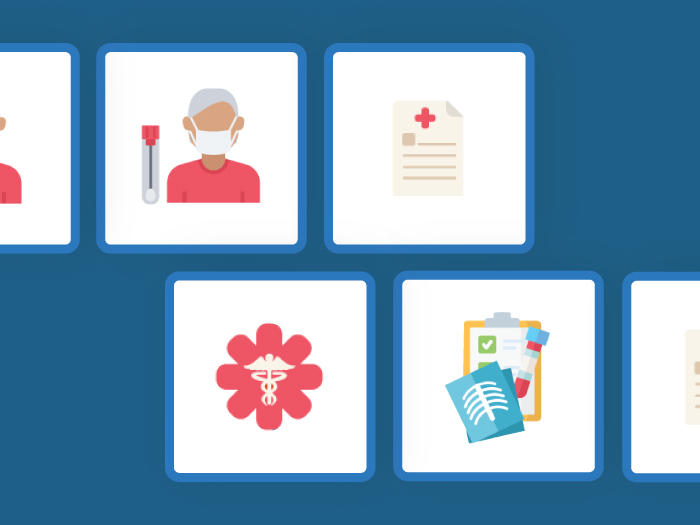
NCI COVID-19 in Cancer Patients Study (NCCAPS)
What is the COVID-19 in Cancer Patients Study (NCCAPS)?
The NCI COVID-19 in Cancer Patients Study, or NCCAPS, is a natural history study of COVID-19 in people with cancer. In a natural history study, researchers follow people and collect medical and other information about them over time to learn more about how a disease and its symptoms develop and change. Diagnosis and treatment of a disease are not part of natural history studies. The knowledge gained through this study will help doctors better manage treatment for people with cancer and COVID-19 in the future.
As part of the NCCAPS study, researchers will collect blood samples, medical information, and medical images from 2,000 people with cancer who also have COVID-19. Each person will be followed for up to 2 years to help doctors understand how cancer affects COVID-19 and COVID-19 affects cancer.
Why study COVID-19 in people with cancer?
Some people who have cancer, especially those who are getting treatment for cancer, may be more likely to have severe illness from COVID-19. Researchers are doing this study so they can learn more about COVID-19 in people with cancer, both during their illness with COVID-19 and after they recover from it. This study will allow researchers to:
- Learn more about the risk factors related to serious illness from COVID-19 in people who are having treatment for cancer
- Study how COVID-19 affects cancer treatment and the results of the treatment
- Find genetic risk factors and markers of serious illness from COVID-19 in people with cancer
- Create a bank of data, blood samples, and images from people with COVID-19 and cancer for future research
Who can enroll in this study?
This study is open to adults who are receiving treatment for cancer and are waiting for SARS-CoV-2 test results or who have COVID-19 now. SARS-CoV-2 is the virus that causes COVID-19.
If you enroll in the study while waiting for SARS-CoV-2 test results and it turns out you are not infected with the virus, you will stop taking part in the study.
See the protocol summary for more information about who can enroll in the study.
How do I enroll in this study?
NCCAPS enrollment is taking place at many doctor’s offices, hospitals, and cancer centers around the United States. If you are receiving treatment for cancer at one of these places and you have COVID-19 or are waiting for results of the SARS-CoV-2 test, your doctor or nurse may ask if you would like to take part in this study. You can enroll during a regular visit to the doctor or hospital or over the phone or video conference. You will not be required to make extra trips to the doctor or hospital for this study.
See the protocol summary for a complete list of open sites.
What are the benefits and drawbacks of taking part in this study?
By taking part in this study, you will help study doctors learn things that may help other people with cancer who get COVID-19 in the future.
There may be some minor drawbacks to taking part in the study. You may have brief pain and a bruise in your arm from blood draws. This risk is no different from any other blood draw. You may also spend more time than usual during your visits to the doctor or hospital. Also, you may be asked private questions about things you normally do not talk about.
There may also be some risks that the study doctors do not yet know about.
What happens once I enroll in this study?
Once you enroll in NCCAPS, a member of the research team will collect information about your medical history, cancer treatment history, and any care for COVID-19 that you have received. You will have extra blood drawn at some visits when you see the doctor for your usual cancer care or enter the hospital for COVID-19 care.
Information, blood, and medical images such as X-rays or CT scans will be collected for up to 2 years after you enroll in the study. Sometimes you will need to answer questions about your symptoms or side effects. Other information will be gathered from your medical records.
Your medical information and test results will be stored in a database. Along with blood samples and images, this information can be shared with researchers for future use. To protect your privacy, your name and other personal information will not be stored with your medical information and samples. We will not share your name and personal information with researchers. Future research that may involve your samples and medical information includes studies of genes, antibodies, blood proteins, and immune cells that may help researchers understand the differences in serious illness caused by COVID-19 in people with cancer.
This study does not test for SARS-CoV-2 or test new treatments for cancer or COVID-19. Taking part in the study will not change the medical care you receive for either disease.
Who pays the costs of taking part in this study?
NCI will pay for the blood draws, storage, and testing that are part of the study. The blood draws will be done only when you are already having blood drawn as part of your regular care.
You or your health plan will need to pay for the costs of care for your cancer and COVID-19, just as you would if you were not taking part in this study. These costs include any co-pays and deductibles.
Trial collaborators
NCCAPS is supported by the National Cancer Institute. The following NCI clinical trial networks are taking part in this study:
- NCI Experimental Therapeutics Clinical Trials Network (ETCTN)
- NCI National Clinical Trials Network (NCTN)
- NCI Community Oncology Research Program (NCORP)
We are also working with experts, scientists, and patient advocates inside and outside these NCI networks to design and conduct this study.






















.png)












No hay comentarios:
Publicar un comentario